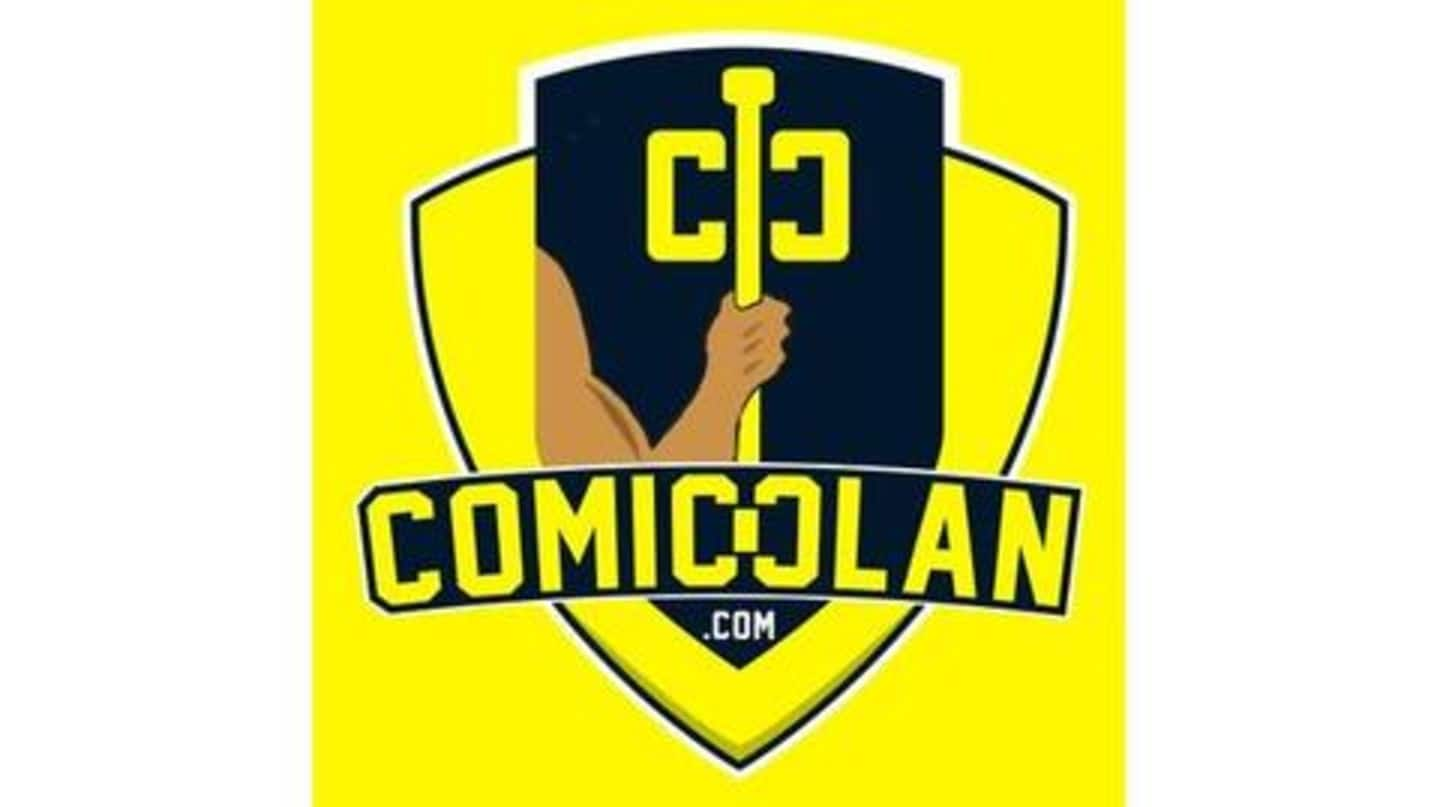
#NewsBytesExclusive: Meet the entrepreneur who is building 'Myntra' for comics
What's the story
Comics have always been doors to fantastical universes that speak of heroes and villains and magical things.
As kids, reading comics enhances our imagination and helps us escape into other worlds that bring us joy and teach us valuable lessons in the process.
Kartik Venkitaraman, co-founder of Comicclan, India's only online exclusive comic book store, intends to maintain that.
We spoke to him about comics and more.
Comicclan roots
From marketing executive to comic store founder: A remarkable journey
Comicclan was founded by Kartik and his childhood friend Dhruv Thaker who quit their safe, well-paying jobs to follow their dreams.
Kartik told us he left the marketing executive post at Fujitsu in 2015, wanting to do something of his own.
While Dhruv is an avid manga reader, Kartik loved comics and gaming as a kid.
Eventually, they hit upon the idea of Comicclan.
Progress
A tough start and a motivating logo, building Comicclan
Kartik admits the starting was tough as they spent a long time building the initial business plan, with feedback and criticisms from friends.
He himself was fixated on the logo (which is really cool), and once it was designed, they were motivated to make Comicclan succeed.
Kartik also gave credit to the publishers and distributors who supplied them with comics, for the success.
Comicclan's aim
From reading comics, to providing a platform for independent artists
Kartik admitted to mostly watching animated series and reading some comics as a kid.
However, once he started the business, he got much more involved gathering knowledge about comics.
Now that they have started Comicclan, Kartik's aim is to give independent Indian comic artists a platform to sell their art, promoting local talent, which he claims is at par with some Marvel, DC comics.
Do you know?
A Myntra for comics, Kartik's vision for the business
Kartik hopes to make Comicclan the equivalent of Myntra for comics. Just like the latter hosts everything fashion related under one umbrella, Kartik plans to host everything comic related under Comicclan's umbrella. He is targeting old-school comic readers and collectors who prefer hard copies.
Blog
Trying to arouse interest in readers, Comicclan runs a blog
Comicclan also runs a blog, although Kartik admits they do not get much time to update it.
It is a good source of information about favorite comic characters and some manga for interested readers.
Kartik's hope is to increase interest through the blog and then redirect readers to their site where they can buy the comics of the characters and superheroes that interest them.
Indian comics
An interested reader myself, Kartik told me about Indian comics
Since Kartik seemed knowledgeable about Indian comics, it was only fair to ask him how Indian comics have changed over the years.
He told us how more and more content was pouring in from independent artists, and how they had engaging and entertaining storylines along with brilliant artwork.
He regretted that several indie artists went unnoticed due to the popularity of Western comics.
Pricing
Love for comics trumps Kartik's business motives
We had to ask Kartik the hard question about how he competed in pricing with mega online stores like Amazon.
Kartik's philosophy is simple. It is not a competition.
They try to retain customers by offering second-time purchasers up to 15% discounts on comics, while core customer groups get exclusive discounts.
However, Kartik assured us their mangas were priced lower than most competing sites.
Do you know?
Kartik's vision for Comicclan is grounded with set goals
Kartik appeared to be a down-to-earth person who set realistic goals for Comicclan. His aim is to improve their supply of comics, to deliver comics quicker to customers, and to increase their customer base. They plan to improve marketing strategies after stabilizing the supply chain.
Message
Kartik and Comicclan's message to Indian parents who dislike comics
Kartik rightly pointed out how many Indian parents consider comics a distraction and pure entertainment. This writer can attest to having parents who decried comics as low literature.
He hoped to increase awareness among parents about how comics helped improve imagination.
He concluded by mentioning how some comics taught about Indian history, religion, culture and famous personalities like Mahatma Gandhi in a fun way.